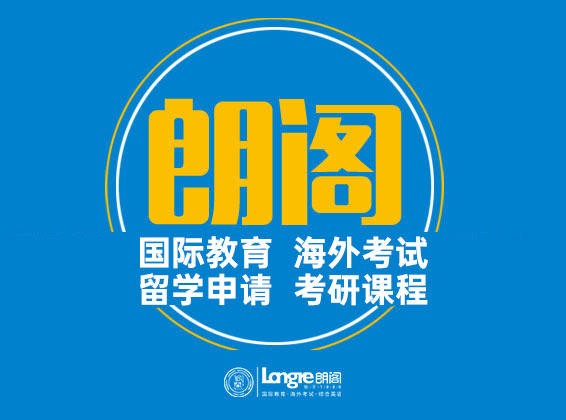P1 服装的社会功能
P2 音乐与人体
P3 高速摄影
朗阁讲师高川川点评
1. 本场考试的难度偏简单。学生普遍反映做题时间充裕,文章难度不大。
2. 整体分析:三篇文章全部是社会类的话题。
本次考试第一,三篇暂时没有收到题型和题量分布的反馈,但是文章和题目的难度不大。第二篇文章是16年至今多次考到的旧题,文章也已经收录在机经里,本次考试文章和题目都有一点改写。
3. 部分答案及参考文章:
Passage 1:服装的社会功能
具体题型和文章原文待确认
文章大意:
一个人穿衣是否得当可能取决于性别。例如,裤装历来只能男性穿;可能取决于年纪,例如,古代西欧的女性青少年要比年长的人穿的裙子长;可能取决于婚姻状态,例如,古代西欧的已婚女人出门要遮头。
不同的职业需要穿不同的衣服。14世纪的英国甚至通过了一项律法,禁止佣人在衣服上佩戴金银等奢侈品。不同的社会等级穿衣也迥异,非洲部落的领袖所穿的衣服能够显示出绝对全力,臣民是不能穿类似针织的衣服的。
婚丧嫁娶生老病死等不同的场合需要穿特定的衣服,而传统的服饰能够增强社区的融合。历史背景能够影响穿衣风格。民众有可能去模仿领袖的穿衣风格。政治冲突比如战争可能会切断制衣原料的供给。经济萧条会让民众的穿衣风格从装饰性到实用性转变。
Passage 2:音乐与人体
题型:段落细节配对5+summary填空3+判断5
参考答案:
14. D
15. G
16. B
17. A
18. F
19. short
20. complex
21. rats
22. TRUE
23. FALSE
24. FALSE
25. NOT GIVEN
26. TRUE
参考文章与题目:
The Mozart Effect
A
Music has been used for centuries to heal the body. In the Ebers Papyrs (one of the earliest medical documents, circa 1500 B.C.), it was recorded that physicians chanted to heal the sick (Castleman, 1994). In various cultures, we have observed singing as part of healing rituals. In the world of Western medicine, however, using music in medicine lost popularity until the introduction of the radio. Researchers then started to notice that listening to music could have significant physical effects. Therapists noticed music could help calm anxiety and researchers saw that listening to music could cause a drop in blood pressure. In addition to these two areas, music has been used with cancer chemotherapy to reduce nausea, during surgery to reduce stress hormone production, during childbirth, and in stroke recovery (Castleman, 1994 and Westley, 1998). It has been shown to decrease pain as well as enhance the effectiveness of the immune system. In Japan, compilations of music are used as medication, of sorts. For example, if you want to cure a headache or migraine, the album suggested Mendelssohn's ? Spring Song." Dvorak's "Humoresque." or part of George Gershwin's "An American in Paris” (Campbell. 1998). Music is also being used to assist in learning, in a phenomenon called the Mozart Effect
B
Frances H Rauscher. Ph. D, first demonstrated the correlation between music and learning in an experiment in 1993. His experiments indicated that a 10- minute dose of Mozart could temporarily boost intelligence. Groups of students were given intelligence tests after listening to silence. relaxation tapes, or Mozart's Sonata for Two Pianos in D Major for a short time He found that after silence, the average IQ score was 110, and after the relaxation tape, scores rose a point After listening to Mozart, however, the scores jumped to 119 (Westley. 1998). Even students who did not like the music still had an increased score on the IQ test. Rauscher hypothesized that "listening to complex, non-repetitive music, like Mozart, may stimulate neural pathways that are important in thinking' (Castleman, 1994).
C
The same experiment was repeated on rats by Rauscher and Hong Li from Stanford. Rats also demonstrated enhancement in their intelligence performance. These new studies indicate that rats that were exposed to Mozart showed increased gene expression of BDNF (a neural growth factor). CRHB (a learning and memory compound), and Synapsin I (a synaplic growth protein) m the brain's hippocampus, compared with rats in the control group, which heard only white noise (e.g. the whooshing sound of a radio tuned between stations)
D
How exactly docs the Mozart effect work? Researchers are still trying to deter- mine the actual mechanisms for the formation of these enhanced learning pathways. Neuroscientists suspect that music can actually help build and strengthen connections between neurons in the cerebral cortex in a process similar to what occurs in brain development despite its type. When a baby is born, certain connections have already been made, like connections for heartbeat and breathing. As now information is learned and motor skills develop, new neural connections are formed. Neurons that are not used will eventually die while those used repeatedly will form strong connections. Although a large number of these neural connections require experience, they also must occur within a certain time frame. For example, a child born with cataracts cannot develop connections within the visual cortex. If the cataracts are removed by surgery right away, the child's vision develops normally. However, after the age of 2, if the cataracts are removed, the child will remain blind because those pathways cannot establish themselves.
K
Music seems to work in the same way. In October 7, researchers at the University of Konstanz, in Germany found that music actually rewires neural circuits (Begley, 1996). Although some of these circuits are formed for physical skills needed to play an instrument, just listening to music strengthens connection used in higher-order thinking Listening to music can then be thought of as “exercise” for the brain, improving concentration and enhancing intuition.
F
If you're a little skeptical about the claims made by supporters of the Mozart Effect, you're not alone. Many people accredit the advanced learning of some children who take music lessons to other personality traits, such as motivation and persistence, which is required in all types of learning. There have also been claims of that influencing the results of some experiments.
G
Furthermore, many people are critical of the role the media had in turning an isolated study into a trend for parents and music educators. After Mozart Effect was published to the public, the sales of Mozart CDs stayed on the top of the hit list for three weeks. In an article by Michael Linton, he wrote that the research that began this phenomenon (the study by researchers at the University of California Irvine) showed only a temporary boost in IQ, which was not significant enough to even last throughout the course of the experiment. Using music to influence intelligence was used in Confucian civilization and Plato alluded to Pythagorean music when he described is ideal state in The Republic. In both of these examples, music did not have caused any overwhelming changes, and the theory eventually died out. Linton also asks. "If Mozart's Music were able to improve health, why was Mozart himself so frequently sick? If listening to Mozart's music increases intelligence and encourages spirituality, why aren't the world's smartest and most spiritual people Mozart specialists?” Linton raises an interesting point, if the Mozart Effect causes such significant changes, why isn't there more document evidence?
H
The "trendiness” of the Mozart Effect may have died out somewhat, but there are still strong supporters (and opponents) of the claims made in 1993. Since that initial experiment, there has not been a surge of supporting evidence. However, many parents, after playing classical music while pregnant or when their children are young, will swear by the Mozart Effect. A classmate of mine once told me that listening to classical music while studying will help with memorization. If we approach this controversy from a scientific aspect, although there has been some evidence that music does increase brain activity, actual improvements in learning and memory have not been adequately demonstrated.
Questions 14-18
Reading Passage 9 has eight paragraphs A-H.
Which paragraph contains the following information?
Write the correct letter A-M in boxes 1-5 On your answer sheet.
14. A description or how music affects the brain development of infants
15. Public's first reaction to the discovery of Mozart Effect
16. The description of Rauscher’s original experiment
17. The description of using music for healing in other countries
18. Other qualities needed in all learning
Questions 19-21
Complete the summary below
Choose NO MORE THAN THREE WORDS from the passage for each answer Write your answers in boxes 6—8 On your answer sheet
During the experiment conducted by Frances Rauscher, subjects were exposed to the music for a 19_________ period of time before they were tested. And Rauscher believes the enhancement in their performance is related to the 20_________ nature of Mozart music. Later, similar experiment was also repeated on 21_________.
Questions 22-26
Do the following statements agree with the information given in Reading Passage 9?
In boxes 9-13 On your answer sheet write
TRUE if the statement agrees with the information
FALSE if the statement contradicts the information
NOT GIVEN if there is no information on this
22. All kinds of music can enhance one's brain performance to somewhat extent
23. There is no neural connection made when a baby is born.
24. There are very few who question Mozart Effect.
25. Michael Linton conducted extensive research on Mozart's life.
26. There is not enough evidence in support of Mozart Effect today.
Passage 3:高速摄影
具体题型和文章原文待确认
考试预测
1. 本场考试的题型只能确认的是出现了段落细节配对,填空和判断题,其他的题型因为考试人数较少,给出的反馈不够全面。但是段落细节+填空+判断的篇章搭配在剑桥真题中非常常见,大家还是注意配对题。从7月11号开始复考,每场考试都有出现配对,主要是人名观点和段落细节的配对,大家一定对此题型和它的篇章搭配梳理清楚,保证做题思路清晰,定位方法明确。
2. 下场考试的话题可能有关社会类,动物类和管理类。
3. 重点浏览2016到2018年机经。
文中图片素材来源网络,如有侵权请联系删除




